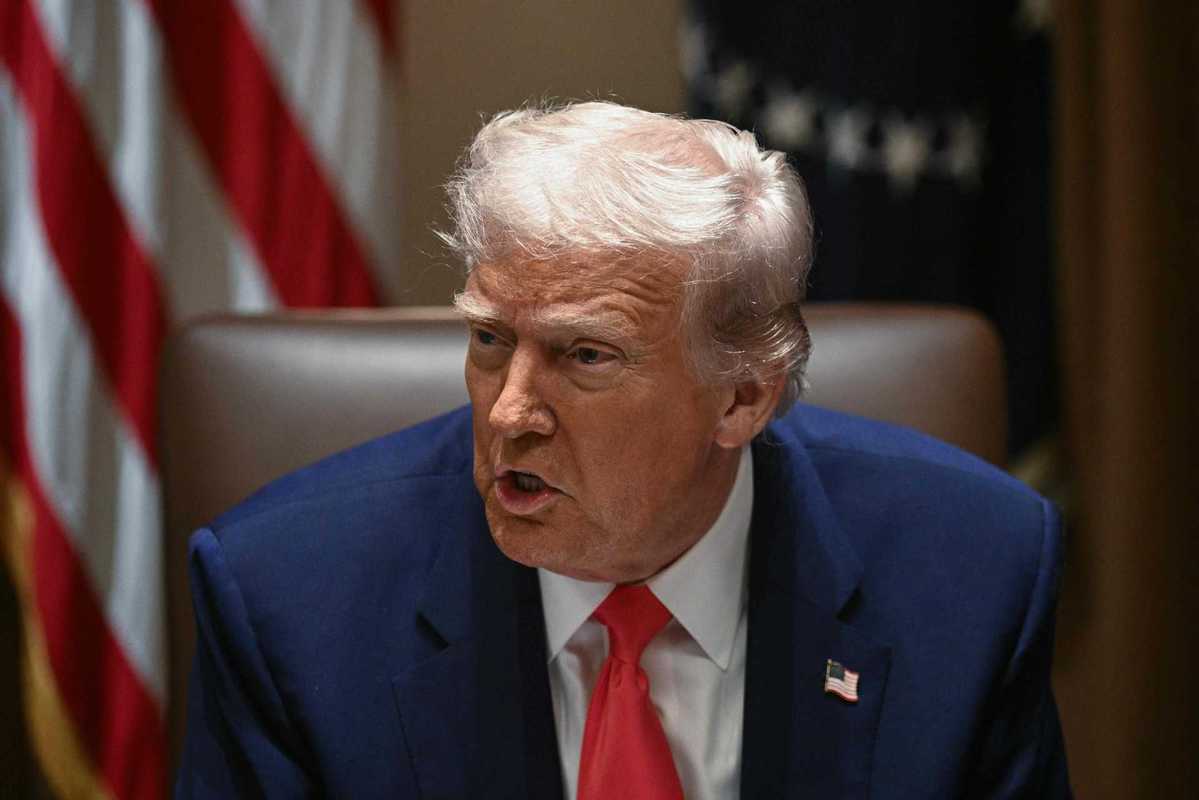Washington risks isolation from global community


The sooner United States President Donald Trump accepts the truth, the better. Unfortunately, he remains convinced that tariffs are an ideal way to "make America rich again".
By now, he has to know that the evidence tells a much different story. For however long this global trade war continues, inflation will go up. Unemployment numbers will go up. Prices paid by consumers will go up. Business productivity will go down. Economic confidence will go down. The stock market will go down. Yet the president insists that there is nothing to worry about because "I see a beautiful picture at the end".
Except for a few people within the administration, no one else in Washington believes that. On Wednesday, Trump said he was "raising the tariff charged to China by the US to 125 percent, effective immediately" as Beijing has not backed down on its promise to hit back.
The US seems to be forgetting that China has already made it clear that it will not be bullied by the bully.
After a slew of tariffs was announced by the US on April 2, the Chinese foreign ministry spoke for the global community when it said, "This practice (of excessive tariffs) of the US is not in line with international trade rules, undermines China's legitimate rights and interests, and is a typical unilateral bullying practice."
The community of the Association of Southeast Asian Nations would agree, and it is well aware that its economies are especially vulnerable to the continuing trade war. From Vietnam and Malaysia to Indonesia and the Philippines, the need for a measured response to US tariff moves remains paramount.
The leaders of some ASEAN nations have already reached out to the US to discuss deals that will reduce the sanctions, and a gathering of the bloc's leaders appears possible in order for a firm statement to be articulated.
Meanwhile, Asia's largest economic powers have already announced an expansion of free trade ties. China, Japan and the Republic of Korea noted that "a predictable trade and investment environment" is essential especially because of the unpredictability emanating from Washington.
If the global community can remain united, which could include allowing smaller nations to accept deals that would reduce their tariff load, the US will become more and more isolated. Isolation does not mean a slew of nations would stop trading with the US, but it could mean, among other possibilities, that people refuse to vacation in the US. Consumers could boycott US-made products. In addition, the US would not be taken seriously when it offered to aid other nations in need. Washington's leadership would not be sought when vexing international issues are discussed.
Any pronouncement from the administration about global security might be mocked. And US citizens visiting other countries should anticipate hostile reactions from people whose livelihoods are under threat.
An obvious question remains unanswered: What is the thinking behind these moves? What motivates the US administration to have such disdain for international norms?
In effect, the more the current administration pays attention to the mainstream media and social media platforms that back it, the more it will hear that the goal to "make America great again" is a kind of moral crusade. As a result, kicked to the curb will be people who dare to question whether this is the right thing or whether it will succeed.
The mythical fork in the road was reached and the US made its choice. Tariffs are not going anywhere. The short-term damage at home and abroad is starting to become evident. The longer-term ramifications await, and there is a very real chance that they will erase whatever credibility the US still has on the global stage.
Rebuilding whatever it is that is being destroyed will take years to complete, presuming of course they choose to undertake such obligations. By then, the world might have confirmed that its reliable and committed economic partner is China.
The author is an associate professor in the Communication and Organizational Leadership Department at Robert Morris University in Pennsylvania, the United States.
































